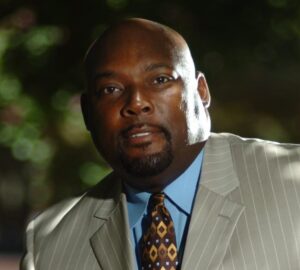
by B. Michael Long
If My people upon whom My Name is called, shall humble themselves, and pray and seek My face, and turn from their evil ways, then I shall hear from the heavens, and forgive their sin and heal their land.
2 Chronicles 7.14
Reflecting on the journey of African-Americans to achieve restoration and liberation, I realize that our collective efforts—marches, demonstrations, voting, integration, and even boycotts—have often fallen short of creating concerted and lasting change. From my field of view, I see that these actions, though impactful in their own right, have lacked a unified ideology to bind them together, leading to fragmented progress and temporary victories. It has become increasingly clear to me that true and lasting change requires something substantially deeper and more impactfully transformative: repentance.
Repentance is often misunderstood as a purely religious concept, a Judeo-Christian practice, but its essence transcends any single belief system. In a traditional West African cultural context, repentance can be comprehended as the principle of Sankofa. Symbolized by a bird facing forward but looking back over its shoulder to grasp a seed, the word Sankofa carries the meaning of going back to fetch what is needed in order to move forward. This idea also captures the essence and meaning of the Hebrew word for repentance: teshuvah. Teshuvah is a word that means to turn back to the path that will lead to fulfillment of purpose. Repentance is a process that accompanies having a profound acknowledgment of wrongdoing, a sincere expression of remorse, and a committed effort to make amends and atonement. Repentance is all about righting wrongs, and restoring what was displaced. In a word, repentance is transformation.
For so-called African-Americans, repentance involves recognizing our collective failed purpose as a nation within a nation and restoring our ancestral and historical disconnection which have resulted in the deep wounds inflicted by centuries of slavery, segregation and systemic racism. Once we acknowledge and address these issues, I contend that we are then able to be fully committed to undergo the hard work of healing and rebuilding ourselves and our communities.
So why repentance? The power of repentance lies in its ability to transform both the individual and the collective. On a personal level, repentance demands introspection and humility. It requires us to confront our own complicity in perpetuating negative thoughts, hurtful words, harmful systems and behaviors. This is not about assigning blame, rather it is about taking responsibility for our actions and their impact on others. When individuals genuinely repent, they undergo a fundamental shift in their mindset and behavior, leading to more compassionate, righteous and just interactions.
On a collective level, repentance can unify us in a way that no other strategy has. When a community comes together in a spirit of repentance, it cultivates solidarity and mutual support. We begin to see each other’s struggles and triumphs as our own, creating a powerful sense of affinity and shared purpose. This unity is essential for any significant social change because it ensures that our efforts are coordinated and sustained.
Consider the civil rights movement of the 1960s. While it achieved monumental victories, such as the Civil Rights Act and the Voting Rights Act, it was ultimately a patchwork of various ideologies and strategies. The lack of a cohesive, overarching ideology meant that once the immediate goals were achieved, the movement struggled to maintain its momentum. Imagine if, instead, there had been a collective embrace of repentance—an acknowledgment of our lack of collective vision and cultural consciousness that would have truly challenged and uprooted unjust laws from hearts and minds due to our ability to be self-defined and self-determined. The result would have impacted a greater, deeper and more enduring change.
Repentance also addresses the root causes of our societal issues. Like a healing modality with great efficacy, repentance doesn’t just look at the symptoms or the effects of social maladies, it goes to the source and seeks to rectify the heart of the matter. While marches and demonstrations can draw attention to injustices, they often fail to address the underlying attitudes and beliefs that perpetuate those injustices. Voting and integration can open doors, but without a change in the collective consciousness, those doors can quickly close. Boycotts can shift economic power, but they do not necessarily change the prejudices that led to economic disparities in the first place. Repentance, on the other hand, is wholesale and widespread change based on the rectification of mindsets, speech patterns and behavior. We need repentance now.
Through repentance, we confront these root causes head-on. We dismantle the internalized racism and self-hatred that have been passed down through generations. We reject the false narratives that have been used to justify our oppression and instead embrace our true history and heritage with pride. This internal transformation is what makes repentance the most viable and effective agent of social change.
In my view, the path to restoration and liberation for African-Americans must begin with repentance. It is a journey that requires courage, honesty and perseverance, as I submit that it is the only viable way to achieve the deep and lasting change we seek. By embracing repentance, we can heal our wounds, reclaim our dignity and build a future where peace, justice and equity are not just aspirations, but realities.
Selah.
To purchase The Kingdom Within, go here: https://www.amazon.com/dp/B0CYTBXRCQ
The Kingdom Within: Exploring Torah Based Governance & the Prophetic Messianic Redemption: Qorbanyah, Moreh Miykael: 9798320268248: Amazon.com: Books
The Kingdom Within: Exploring Torah Based Governance & the Prophetic Messianic Redemption [Qorbanyah, Moreh Miykael] on Amazon.com. *FREE* shipping on qualifying offers. The Kingdom Within: Exploring Torah Based Governance & the Prophetic Messianic Redemption
www.amazon.com


